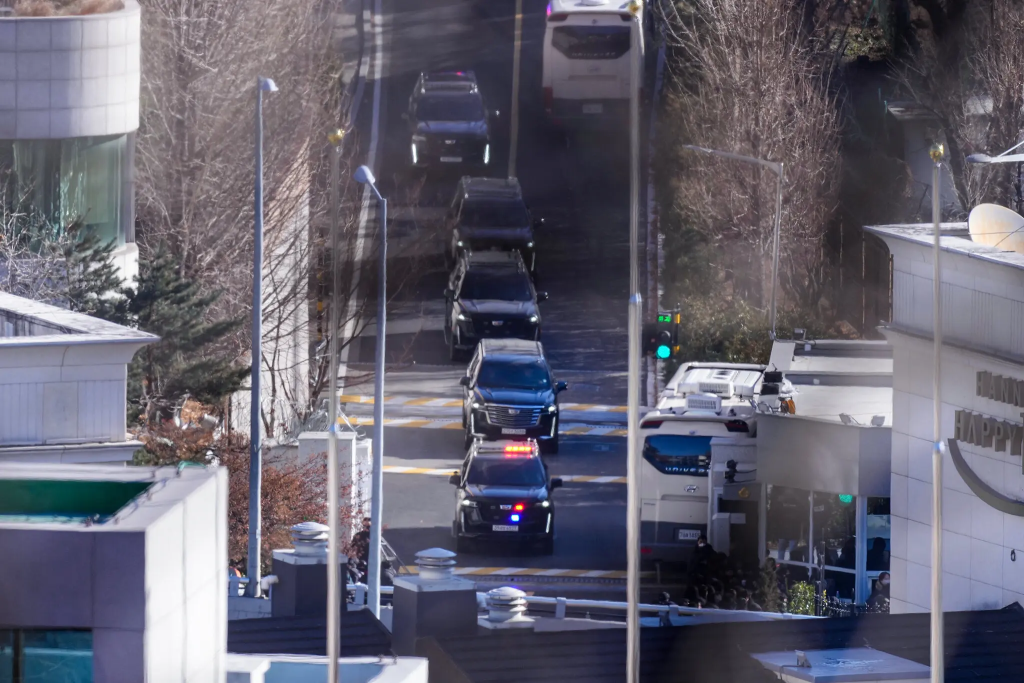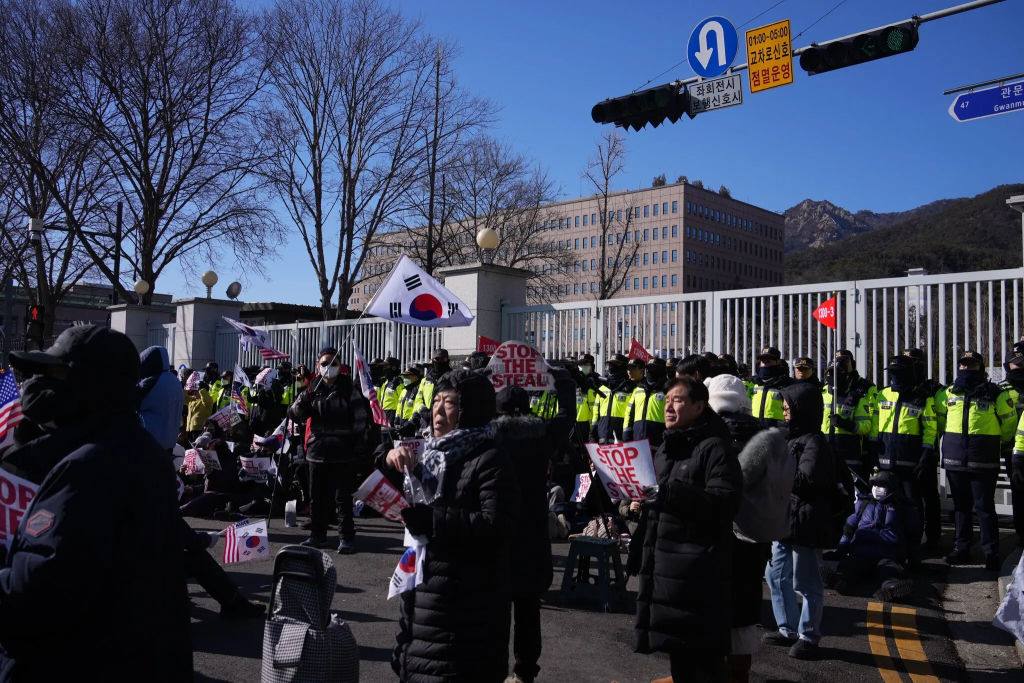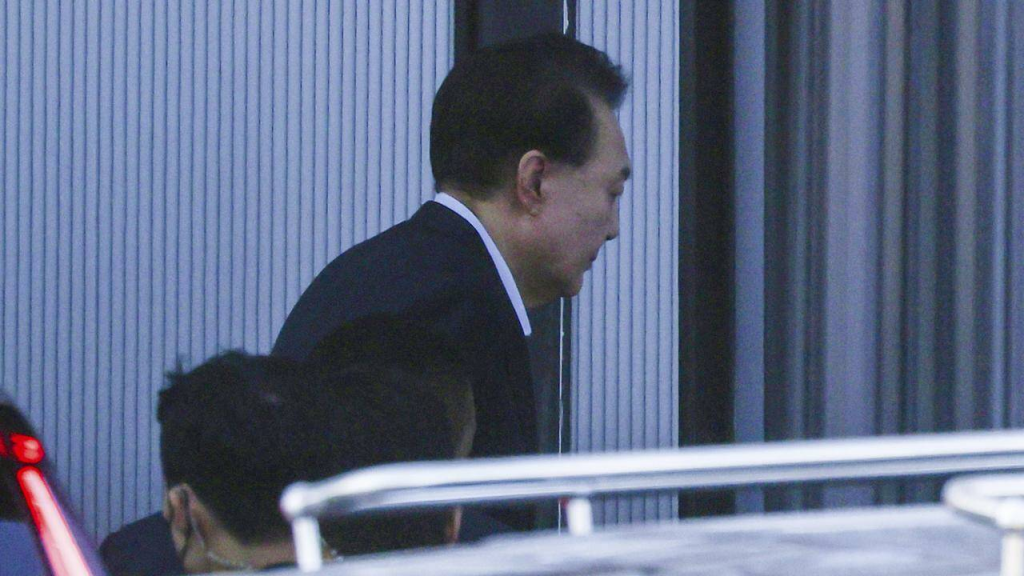South Korean President Yoon Suk Yeol was arrested on Wednesday, marking the first time in the nation’s history that a sitting president has been detained. The arrest follows Yoon’s controversial declaration of martial law in December, which has thrown the country into political upheaval. This development answers lingering questions about “what’s happening in South Korea” and raises international concerns over the stability of Asia’s fourth-largest economy.
The Arrest of South Korea’s President
President Yoon Suk Yeol’s detention came after weeks of standoff at his official residence in Seoul, culminating in a large-scale operation involving thousands of police officers and investigators. Yoon had been holed up in his residence since December, protected by armed security, after his impeachment by the National Assembly.

The Corruption Investigation Office for High-Ranking Officials (CIO), which led the operation, arrested Yoon under allegations of insurrection stemming from his martial law declaration on December 3. The declaration, aimed at quelling perceived opposition threats, involved sending troops to parliament—a move widely condemned as a throwback to South Korea’s authoritarian past.
Why Was South Korea’s President Impeached?
Yoon’s impeachment was driven by accusations of abuse of power and insurrection related to his martial law declaration. Critics argue that his actions violated the constitution and undermined the democratic process. The Constitutional Court is now deliberating whether to uphold the impeachment, a decision that could either permanently remove Yoon from office or reinstate him.
Why Was Martial Law Declared in South Korea?
Yoon justified the martial law declaration in a late-night address, claiming it was necessary to counter opposition lawmakers who he accused of paralyzing state affairs and threatening national security. He alleged electoral fraud and foreign interference, though these claims were widely dismissed by observers and courts.
The declaration was met with swift backlash, with members of the National Assembly, including some from Yoon’s own party, voting to reverse the order just hours later. This decision set the stage for Yoon’s impeachment on December 14, further destabilizing the political landscape.
South Korea President Arrested: What’s Next?
After his arrest, Yoon was transported to the CIO headquarters for questioning. He refused to answer investigators’ questions or allow video recordings, maintaining that the investigation is illegal. Yoon’s lawyers claim the warrant lacks jurisdictional authority and have vowed to challenge its validity.

The warrant allows investigators to hold Yoon for 48 hours, during which they must decide whether to apply for formal charges or release him. If convicted of insurrection, Yoon could face life imprisonment or even the death penalty.
What’s Happening in South Korea Now?
Yoon’s arrest has deepened divisions within South Korea, with supporters and opponents clashing outside his residence and the CIO headquarters. Pro-Yoon demonstrators, many waving American flags and chanting slogans like “Stop the Steal,” echo unsubstantiated claims of election fraud. Meanwhile, opponents demand accountability for Yoon’s actions, calling for justice and the restoration of democratic norms.
The political crisis has also rattled South Korea’s international allies. The United States and Japan have expressed concerns, emphasizing the importance of adhering to constitutional processes.
South Korea’s Democracy In Question
The arrest of Yoon Suk Yeol underscores the fragility of South Korea’s democratic institutions. While the country has a history of prosecuting former leaders, the detention of a sitting president over martial law and insurrection charges is unprecedented.

Yoon’s actions have revived painful memories of South Korea’s authoritarian past, but they have also galvanized political engagement among citizens. Support for Yoon’s conservative People Power Party has risen in recent weeks, reflecting growing polarization within the electorate.
The unfolding political drama in South Korea highlights critical questions about governance, accountability, and the rule of law. As the Constitutional Court deliberates Yoon’s impeachment and investigators proceed with their case, the country stands at a crossroads. The outcomes will shape not only South Korea’s future but also its standing as a stable democracy in the global arena.


